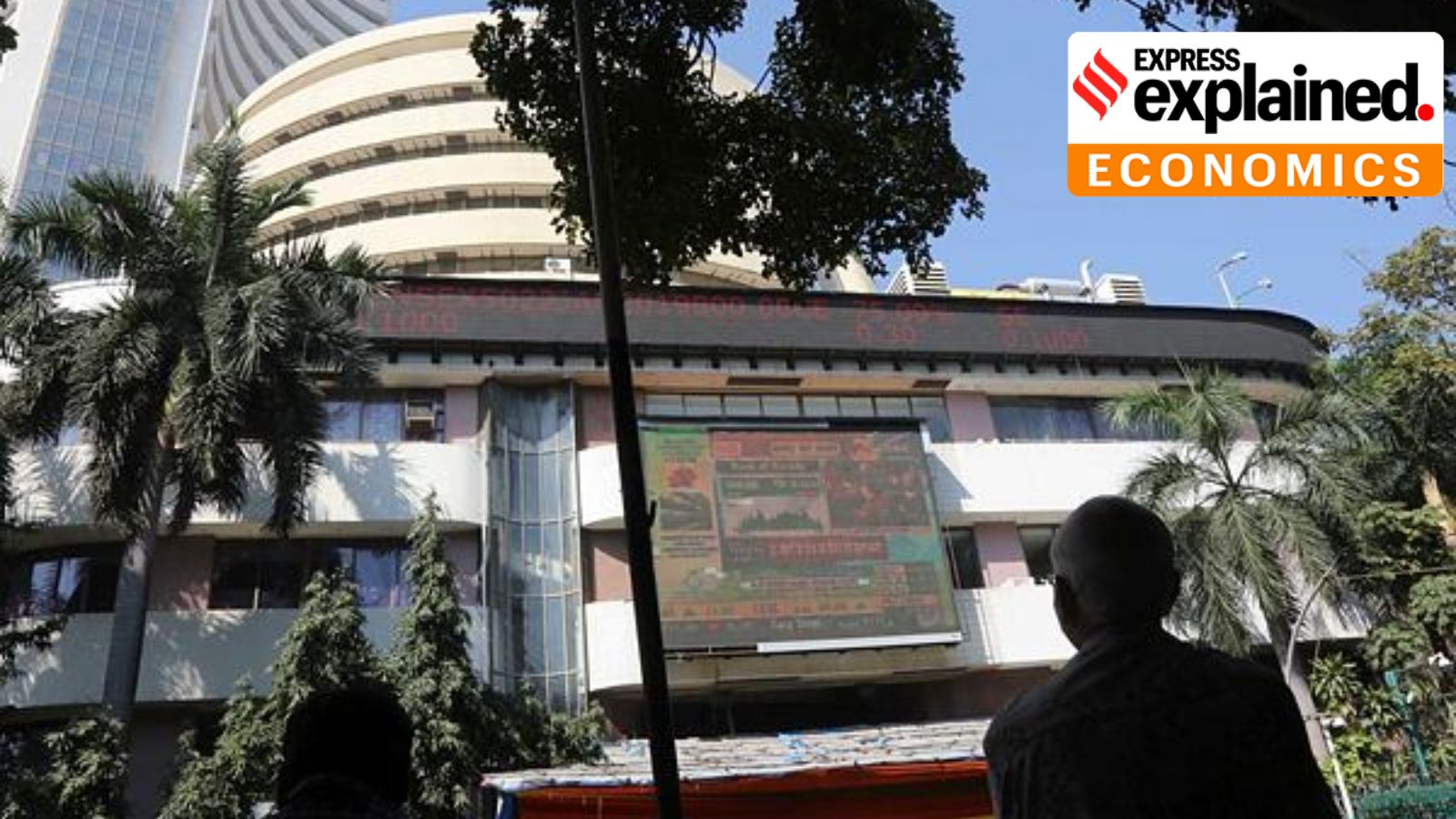Explained: SEBI’s proposed measures to curb F&O speculation
SEBI has proposed a series of steps to restrain speculative trading in the index derivatives segment amid concerns about an exponential rise in the volumes of trading in futures and options particularly by individual investors
 The BSE building, Dalal Street. (File Photo -Ganesh Shirsekar)
The BSE building, Dalal Street. (File Photo -Ganesh Shirsekar)Capital markets regulator, Securities and Exchange Board of India (SEBI) on Tuesday (July 30) proposed a series of measures to curtail speculative trading in the index derivatives segment. This comes amidst concerns about an exponential rise in the volume of trade in the futures and options (F&O) segment, particularly by individual investors.
The proposed steps aim at enhancing investor protection and promoting market stability in derivative markets. We explain.
What are the different types of derivatives?
Derivatives are essentially financial contracts that derive their value from the underlying asset, such as stocks, commodities, and currencies. Index derivatives therefore derive their value from the underlying index.
Futures and options are two types of derivatives where investors, based on their expectation of future price movement, enter into a contract to buy or sell the asset in ‘lots’ or multiple units of the asset, by paying a small margin amount.
A futures contract obliges its buyer to purchase the underlying asset at the predetermined price on a specified date. In contrast, an options contract allows its investor the right but not the obligation to trade the underlying assets as stipulated at a specific price on the specified date.
What measures have the SEBI proposed?
According to SEBI, derivatives markets assist in better price discovery, help improve market liquidity and allow investors to manage their risks better. The following measures aim to ensure sustained capital formation by shielding against bursts of speculative hyperactivity.
Minimum contract size
SEBI has recommended to increase the minimum contract size for index derivatives contract between Rs 15 lakh to Rs 20 lakh. This, after six months, can be increased between the intervals of Rs 20 lakh to Rs 30 lakh. At present, the minimum contract size requirement for derivative contracts is in between Rs 5 lakh to Rs 10 lakh.
Upfront collection of option premium
The regulator has proposed that brokers can collect option premiums on an upfront basis from the clients.
Currently, there is a stipulation for upfront collection of margin for futures position (both long and short) as well as options position (only short options require margin whereas long options require payment of options premium by buyers). There is no explicit stipulation of upfront collection of options premium from options buyer by members.
Intraday monitoring of position limits
SEBI suggested that the position limits for index derivative contracts should be monitored by Market Infrastructure Institutions (MIIs) such as clearing corporations or stock exchanges on an intraday basis, with an appropriate short-term fix, and a glide path for full implementation.
Currently, position limits for different categories of participants and products are specified by SEBI, and monitored at the end of the day by clearing corporations or stock exchanges. Particularly on the day of the expiry of the contract, there is a possibility of undetected intraday positions beyond permissible limits as end-of-day open positions would be NIL.
Rationalisation of weekly index products
The market regulator has recommended providing weekly options contracts on a single benchmark index of an exchange.
At present, weekly expiry index derivatives contracts are offered by stock exchanges in addition to monthly contracts. There is an expiry of such weekly contracts on all five trading days of the week across different indices/exchanges mirroring the 0 DTE (Zero Day to Expiry) construct, resulting in speculative money moving from one expiry of the index to another every single day.
Removal of calendar spread benefit on the expiry day
SEBI has proposed that the margin benefit for calendar spread positions would not be provided for positions involving any of the contracts expiring on the same day.
Rationalisation of options strikes
The strike price of an option is the price at which a put or call (buy or sell) option can be exercised.
For rationalisation of options strikes, the consultation paper suggested that the strike interval be uniform up to a fixed coverage of 4 per cent near the prevailing index price and the interval increase as the strikes move away from the prevailing price (around 4 per cent to 8 per cent).
SEBI has also recommended that not more than 50 strikes should be introduced for an index derivatives contract at the time of contract launch.
Increase in margin near contract expiry
SEBI has proposed increasing the margins on the expiry day and the previous day to address the issue of high implicit leverage in options contracts near expiry.
At the start of the day before expiry, Extreme Loss Margin (ELM) will be increased by 3 per cent, and at the start of expiry day, ELM will be further increased by 5 per cent, the regulator proposed.
Why have these measures been proposed?
In the Union Budget 2024-25, announced on July 23, Finance Minister Nirmala Sitharaman proposed to double the Securities Transaction Tax (STT) on F&O of securities, effective October 1, 2024. The STT, which is levied on transactions in specified securities, has been increased to 0.02 per cent and 0.1 per cent, respectively.
The consultation paper showed that in FY 2023-24, 92.50 lakh unique individuals and proprietorship firms traded in the NSE index derivatives segment and cumulatively incurred a trading loss of Rs 51,689 crore. Only 14.22 lakh investors (about 15 per cent) made a net profit, as per NSE data.
Market participants have welcomed the proposed measures as these will help curb the irrational exuberance of retail investors in the derivatives market.
- 01
- 02
- 03
- 04
- 05






































